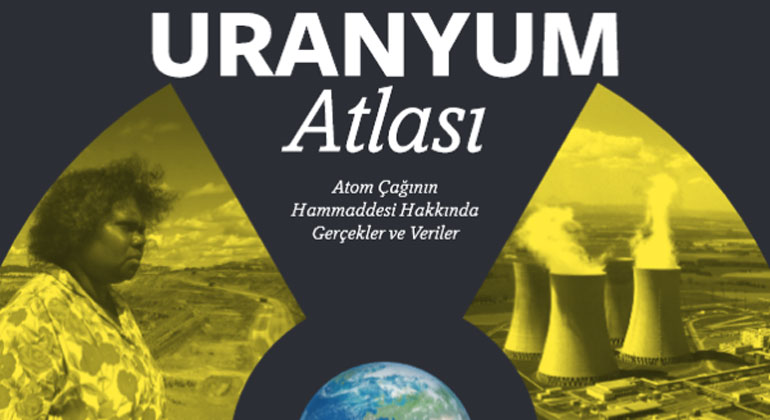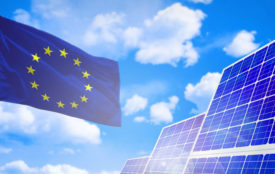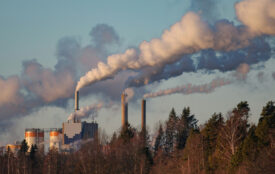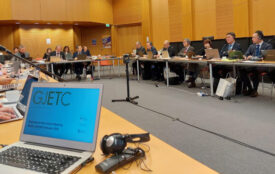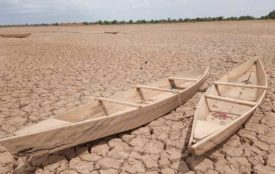Turkey before the Start of the Nuclear Age
Turkey’s first nuclear power plant is due to be connected to the grid soon. We asked Özgür Gürbüz, co-founder of the Turkish environmental protection organization Ekosfer, how the Turkish public perceives the entry into the nuclear age. Interview: Horst Hamm
Mr. Gürbüz, the first of four reactors at the Akkuyu nuclear power plant site is due to go into operation in 2024. What does the Turkish public say about this project?

It has been 23 years since the last attempt to build a nuclear power plant was announced by the former Minister of Energy. There have been delays in the project, but we are now in the final stages and, as you said, the first reactor should be in operation by 2024. The vast majority of the media in Turkey is controlled by the ruling party, the AKP, so there is no real debate. In the last 23 years, the government has never had a debate with the anti-nuclear opposition.
The opposition parties criticise the Akkuyu project mainly because of the expensive electricity, but they do not take a firm stand against nuclear power. However, if we look at public opinion polls, we see clear opposition to nuclear power. In Konda’s Perception of Climate Change reports, people who say they would prefer to use electricity generated by nuclear power plants make up only 5 per cent of the population. Another survey by the same company found that only 19 per cent of people see nuclear power as a solution to energy dependency, compared with 71 per cent for solar power and 64 per cent for wind power. This has been going on for years; in 2011, IPSOS found that 71 per cent of people in Turkey were against nuclear power. There would have been no nuclear power plants in Turkey if the government had listened to the people.
Rosatom receives 12.35 dollar cents per kilowatt hour for half of the electricity generated in Akkuyu; the other half is paid for according to market prices. Doesn’t that make nuclear power far too expensive for Turkey?
That makes it ridiculously expensive. In the Renewable Energy Zone tenders for solar and wind, the winning companies offered between 2 and 3 cents per kWh, and even less. The guaranteed purchase price for Akkuyu is 12.35 dollars cents per kWh for 15 years. Nuclear power is 4 or 5 times more expensive than solar or wind power in Turkey. Even if we add battery storage, nuclear power will still be more expensive. It remains dangerous and dependent on foreign countries.
Is this being discussed in public?
It is now widely accepted that nuclear power is expensive. We have always said this, but now that the agreement with Russia has made it clear to everyone, the nuclear project will have serious consequences for the Turkish economy. The opposition parties are also using this argument very often now, and there is hardly a serious person who says otherwise. The government and the Russian company prefer not to talk about economic issues. Before the agreement with Russia, many pro-nuclear people claimed that nuclear power was a cheap source of electricity. When they were confronted with reality, the claim that “nuclear power is cheap” disappeared.
The operator is the Russian state corporation Rosatom. Does this mean that Turkey is becoming very dependent from Russia?
Turkey’s energy dependence on Russia is at record levels. Last year, 40.7% of oil imports, 39.5% of gas imports and 38.7% of coal imports were from Russia. With the Akkuyu NPP, Russia will also begin to play a direct role in the Turkish electricity market. This time we do not even have the option of a change of supplier! The technology and operational capabilities belong to the Russians.
I know that you and Ekosfer are publicly criticizing the project. Is it dangerous to oppose President Recep Tayyip Erdogan’s state apparatus?
We believe that nuclear power is expensive, dangerous, dependent on foreign sources and has a huge unresolved waste problem. That is why we are against it, no matter where it is – in Germany, the USA, China or Turkey. We are an NGO working to stop climate change and the nuclear industry stealing the necessary funds that need to be invested in energy efficiency and renewable energy technologies. So it is not only about Erdoğan’s government, we also criticise the opposition parties when they take a pro-nuclear stance. We want a nuclear-free world.
Last May, President Erdogan was re-elected. Does the election have any consequences for the current nuclear policy?
No. The AKP has always wanted to build a nuclear power plant and we do not expect any change in this policy because the opposition does not see this as a priority area to challenge the government’s position. Of course, this is a big mistake of the opposition parties because nuclear power is blocking Turkey’s energy transition and important economic and social developments come with energy transition.
I have read that Alparslan Bayraktar, Turkey’s deputy minister of energy and natural resources, has announced that Turkey is discussing the construction of a second nuclear power plant in Thrace in northwestern Turkey in cooperation with China. Can this project still be stopped? in cooperation with China. Can this project still be stopped?
Well, this is the kind of announcement we hear from Minister Bayraktar from time to time. The fact that there was a second nuclear power plant project in Sinop and a theatrical EIA meeting was held. This project was cancelled and the Franco-Japanese consortium dissolved. Japan had asked to increase the price promised in the guaranteed purchase contract. Turkey wants cheap nuclear energy, which does not exist. Whether China can provide it or not, we do not know, but just as we do not know all the details of the agreement between Russia and Turkey for Akkuyu, there are many side issues that come with nuclear agreements. Nothing is transparent, so crazy deals can be made in Turkey that are against the public interest. We have seen many examples.
Do you know where the uranium fuel comes from that will be used in Akkuyu?
According to the international agreement between Russia and Turkey, the project company, which is owned by Russian state companies, will be responsible for the fuel supply. Interestingly, before the presidential elections they announced, together with the MOE, that the first fresh fuel had been delivered to the site, then after the elections we learned that the opening of the first unit would be delayed until 2024.
Turkey has five regions where uranium could be mined. What do you think of the plans to start uranium mining in your own country?
There is no certainty about uranium mining in Turkey, as there is a question about the profitability of such an activity. Having said that, the international agreement between Russia and Turkey opens up the possibility of building a fuel fabrication plant, but no separate agreement has been signed on this matter. I don’t think that’s feasible either, but it could be used to make some political gains. The establishment of the whole fuel cycle in Turkey will face hurdles; economic, political, but the first question is still there. Is there enough uranium in Turkey to meet even the needs of the Akkuyu plant?
In mid-April, we jointly published the first Turkish-language uranium atlas. Will the atlas still help to prevent the planned uranium mining in Turkey?
The atlas is the first comprehensive source in Turkish on the reality of uranium mining. We have sent the report to relevant NGOs and distributed it at public meetings. The report is also available digitally on our website. We hope that it will provide information to those who are fighting against uranium mining and nuclear power plants in Turkey. It is a very informative source for everyone, from journalists to students. We are pleased to publish it and thank all those who contributed to it.
How is the atlas perceived by the public?
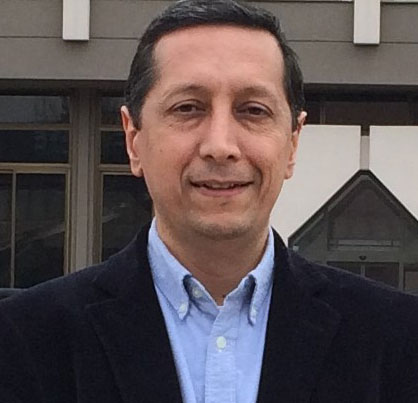
Independent media have shown interest in our report. People fighting against uranium mining and nuclear power plant projects have also shown interest, and it has already become an important source of information in Ekosfer’s library. We are trying to stop the disinformation about nuclear energy by spreading correct information, and the Uranium Atlas report serves this purpose very well.
Özgür Gürbüz, born in 1972, has been working as a journalist on economic, energy and environmental issues for various newspapers, radio stations and magazines in Turkey and abroad since 1994. He is co-founder of the Turkish environmental protection organization Ekosfer.
QUELLE
Dr. Horst Hamm – Geschäftsführender Vorstand Nuclear Free Future Foundation 2023
